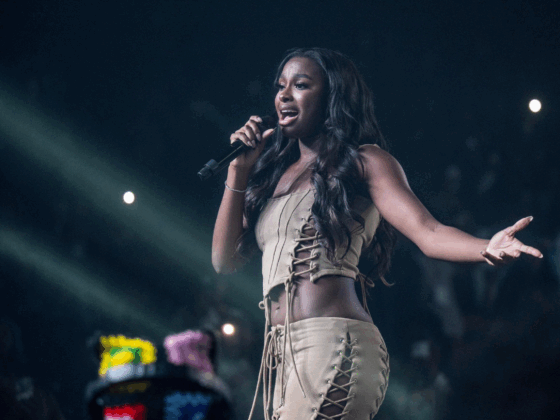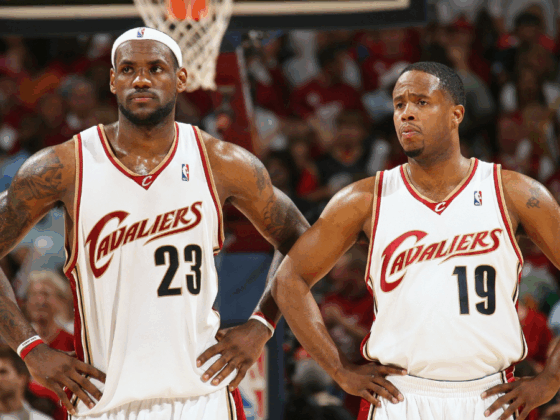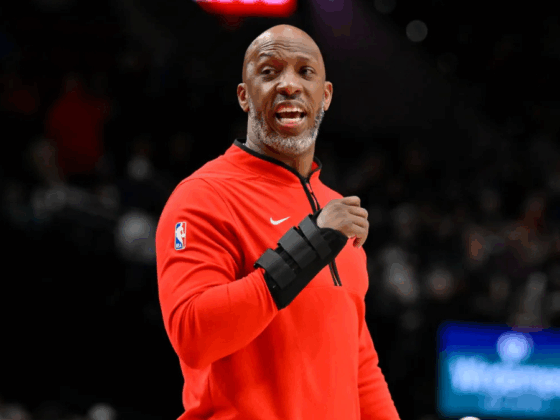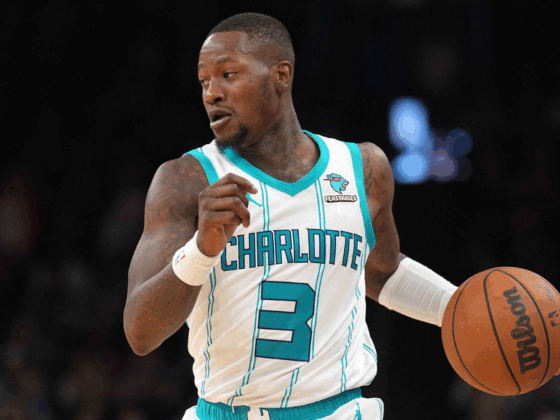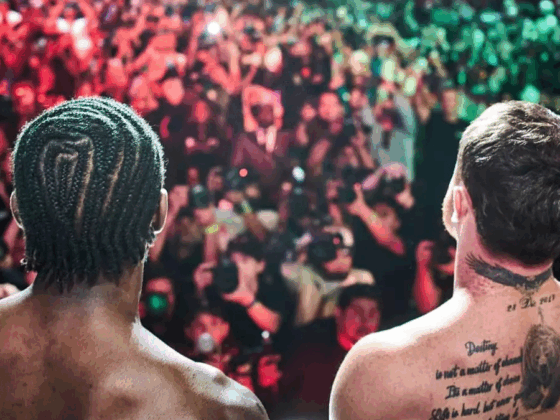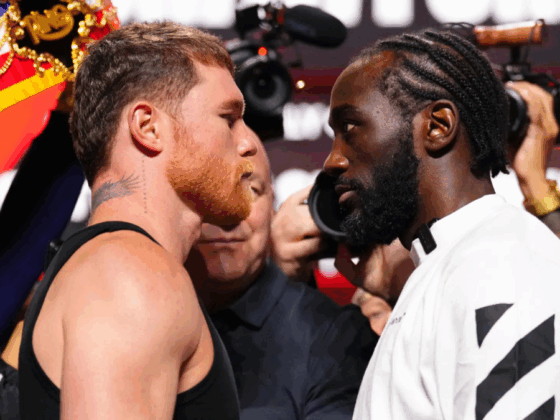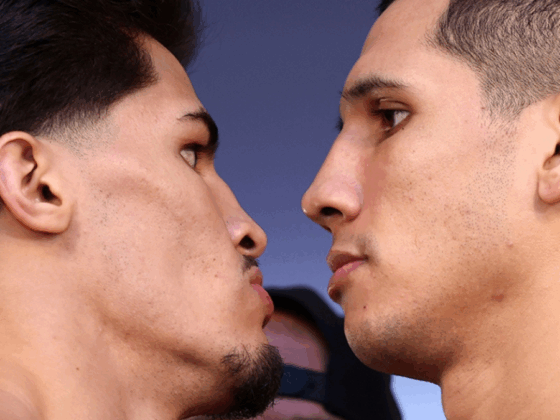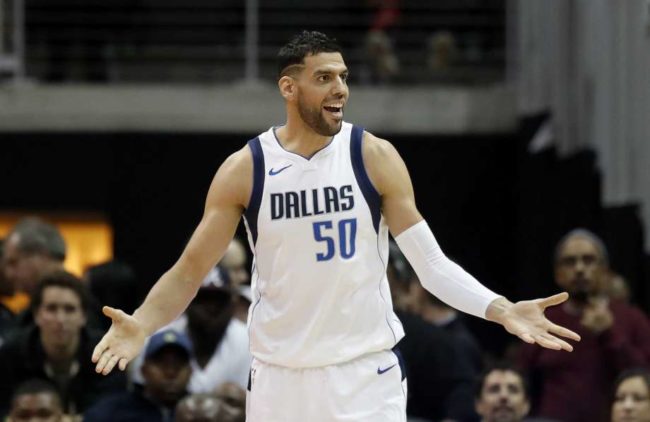
Salah Mejri didn’t pick up a basketball until he was 18 years old. Now at 31 years old, Mejri earns his money as a reserve center for the Dallas Mavericks in the NBA.
Salah Mejri was born in Tunisia, a country in Africa with an estimated population of 11 million people. He was raised as most others were: immersed in Tunisian culture, sports, ethics and morals. The game of basketball was largely unknown to him at an early age.
“Soccer was my sport,” Mejri told Def Pen Hoops in a phone interview. “I wanted to play soccer. My brother played soccer, my father was involved with soccer, my uncles played soccer, that’s what everyone played and went crazy about.”
Growing up in Tunisia, Mejri dominated on the soccer field. His incredible athleticism, impressive size for a high-schooler and uncanny ability to move like a 6-foot player despite standing at 7 feet impressed his peers and elders alike.
Similarly to Philadelphia 76ers All-Star center Joel Embiid, Mejri was introduced to basketball much later than most players in today’s NBA were. In 2005, when he was just 18 years old, Mejri shifted his focus to studying engineering and electronics — until one man changed his destiny forever.
“You are so tall!” Mejri recalls hearing the man say. “You need to play basketball.”
The man’s name was Moncef Zaghdoudi.
Zaghdoudi oversaw mostly everything related to sports in Mejri’s city, and upon seeing Mejri’s massive frame and athletic capabilities, made a proposition that Mejri says he’ll never forget.
“You could have a future in basketball,” Zaghdoudi told Mejri. “Come with me. We’ll take you to the right spot.”
Mejri considered the man’s proposition, mulling over whether he should accept the invite.
“I’m like, ‘What is this guy talking about?’ I don’t know nothing about basketball,” Mejri laughed, admitting he eventually accepted the invitation.
He traveled with Zaghdoudi to a Tunisian team and began practicing with the second team immediately. The club would eventually ask him to play with the national team. Suddenly, an unexpected future in basketball existed in Mejri’s life.

Mejri was a quick learner, dominating the game on both ends of the floor while in Tunisia. His knowledge of the sport increased with every game he played. That, combined with his leaping ability, strength and size, made Mejri an appealing candidate for a team lacking a presence at the center position.
Mejri joined the Tunisian Basketball League at age 20 and signed a contract to play in Belgium a few years later in 2010. He also signed with his first agency around that time, devoting his full attention to basketball.
One standout moment for Mejri, a day he calls the most unforgettable experience of his basketball career, came on August 28, 2011. Mejri led his team to Tunisia’s first African Championship and was recognized as the best player, a culmination of six years of hard work and dedication toward improving his craft. A spot in the Olympics was also earned as a result.
“I will never forget that night,” Mejri said. “Never. It was a great experience for me.”
With interest in Mejri at an all-time high in 2011, he chose to pursue the dream of nearly every basketball player: Becoming an NBA player. But Mejri, just like many other players coming from overseas at the time, was stopped in his tracks due to the NBA’s well-documented lockout at the start of the 2011-12 season.
He played a handful of Summer League games in 2012 with the Utah Jazz, but didn’t join a team for the NBA season. It was a tough decision that summer, but having the potential once-in-a-lifetime opportunity to represent his country in the Olympics took first priority for Mejri.
Mejri then signed with Real Madrid one year later, becoming the first Tunisian player in the history of both Real Madrid and the EuroLeague. He played exceptionally well at center, developing into a top shot-blocker while helping Real Madrid win the EuroLeague championship and Spanish League championship in 2015. The name Salah Mejri was becoming more and more popular.

And with that in mind, he decided to make another run at the NBA.
As free agency opened in July of 2015, Mejri sifted through his options, working to determine which destination was most appealing. He shared a mutual interest with the Dallas Mavericks, led by general manager Donnie Nelson, owner Mark Cuban and head coach Rick Carlisle. It didn’t take long before he made his choice.
Mejri signed his first NBA contract with the Mavericks at the end of the month, working his way through training camp and earning himself a spot on the regular-season team in the fall.
He’s played 164 games across three seasons with the Mavericks since then, becoming a reliable rim protector and rebounder off the bench for Rick Carlisle. He’s played with greats like Dirk Nowitzki, recorded multiple double-doubles on the NBA hardwood and earned millions of dollars while playing the sport he loves — something he didn’t even know was possible two decades earlier in Tunisia.

But it’s safe to say this season has been one of the most tumultuous in recent years for Mavericks. The team currently sits 13th in the Western Conference with a 22-49 record, and, along with Nowitzki’s NBA future in immediate question, has been rocked with two off-the-court issues that came to light in 2018.
First, they were grilled with some off-the-court news in the form of sexual harassment allegations, something each Mavericks player is fully aware of. Despite the disappointing, unfortunate news released in an article by Sports Illustrated, Mejri and his teammates remain focused on playing their best basketball and blocking out the issues coming from above them, of which they have little control.
“We haven’t really focused on that,” Mejri told Def Pen Hoops. “I’m focused more on my career and time on the basketball court. And, you know, it affects me the same way it affects everyone in this organization. But we don’t want to focus too much on that stuff [above us], you know. What’s going on with the organization is for the organization to handle, not the players. Our focus is on playing.”
The second issue that Mejri and the Mavericks faced came directly from team owner Mark Cuban, who was fined $600,000 after the NBA concluded he violated the league’s anti-tanking policy. Cuban was punished for his comments on a podcast, when he admitted that he met with his players and told them, “Losing is our best option.”
“Mark didn’t say that to us,” Mejri told Def Pen Hoops. “We’re trying to win. You can’t imagine how intense the locker room is after every time we lose. Nobody wants to lose. It’s hard to keep losing and losing.”
Naturally, as Mejri continues to improve and climb the ranks, his competition continues to do much of the same. A separate challenge for Mejri today is teams’ alteration to their style of play, with several coaches opting to feature small-ball lineups over bigger lineups. Centers who shoot from outside can make it difficult for interior-oriented players such as Mejri on defense.
“The league has changed a lot, with a lot of teams playing smaller now,” Mejri told Def Pen Hoops. “Sometimes, it’s harder for us big men to play now, and so the coaches try to use me in the perfect situation and perfect time against that. I always try to do my best to help the team: Pick-and-rolls, rebounding, blocking shots. Rim protection is another thing, it helps the team a lot.”
Salah Mejri, at 29 years old and in his third NBA season, will enter free agency this summer for the first time since 2015.
Mejri switched agencies in February and is now represented by Mark Bartelstein of Priority Sports. Bartelstein negotiated several successful deals for his clients in free agency last summer, including monster deals for Boston’s Gordon Hayward (four years, $128 million), New York’s Tim Hardaway Jr. (four years, $71 million) and Miami’s James Johnson (three years, $60 million). Mejri enters free agency on July 1.
For the Mavericks, they’ll have a decision to make once free agency opens in July, the same decision they were faced with three years prior. Only now, standing before them is an improved, physical floor-enforcer with three years of NBA experience under his belt. Mejri is expected to have multiple teams interested in his services this July, with his focus now on doing everything he can to finish his contract year on a high note.
“I’ve given a lot of effort in the three years I’ve been here in Dallas,” Mejri said. “We still have just under a month left, so I need to keep the same mindset — play as hard as I can every time, and try to help the team win as many games as we can win. I’m a team player. I don’t play for myself. I try to help the team do the best we can do.
“It’s been a hard season for us, but I’m always focused on doing the right thing the right way.”
***
Editor’s Note: The following are some fan-submitted questions answered by Mejri in the Def Pen Hoops interview.
Q: Looking at your greatest strengths as a basketball player, which strength do you think stands out the most for you on the Mavericks?
Mejri: “Intimidation.”
Q: Who at your position is the hardest player to defend, in your opinion?
Mejri: “Toughest to defend? There’s a few of them. There’s a lot of skilled big men, strong big men. DeMarcus Cousins — he’s huge. He can shoot, drive the ball. Then there’s A.D. [Anthony Davis]. But I mean, there’s a lot of them. It’s hard to play against Dwight Howard too, he’s strong. Just about every team has one really good big man [who is] hard to play against.”
Q: What’s your favorite thing to do off the court?
Mejri: “Probably mixing music. Either that or just listening to music.”
JD: “Alright, so I’m going to do something crazy here. When I say a name, I want to know the first word or two that comes to your mind after hearing each name. Okay?”
Mejri: “Okay, let’s go.”
JD: “Mark Cuban.”
Mejri: “Great President.”
JD: “Dirk Nowitzki.”
Mejri: “The GOAT.” (greatest of all time)
JD: “The what?”
Mejri: “The GOAT. He’s the GOAT!”
JD. “Okay, that’s a fantastic answer. What about Rick Carlisle?”
Mejri: “Good coach. Good coach. And he has a ring!”
JD. “True. Mavericks fans.”
Mejri: “M.F.F.L.” [Mavs Fans For Life]
JD: “That’s a good one.”
Mejri: “Great fans, great fans.”
JD: “LeBron James.”
Mejri: “The King.”
JD: “The Golden State Warriors.”
Mejri: “They changed the game. That’s that.”
JD: “That’s four words!”
Mejri: “One word for that team just isn’t enough,” he said, laughing.
